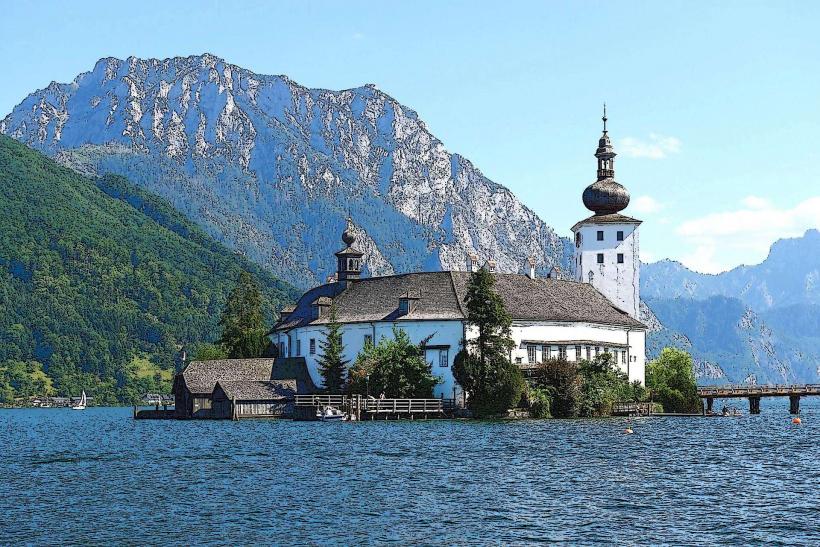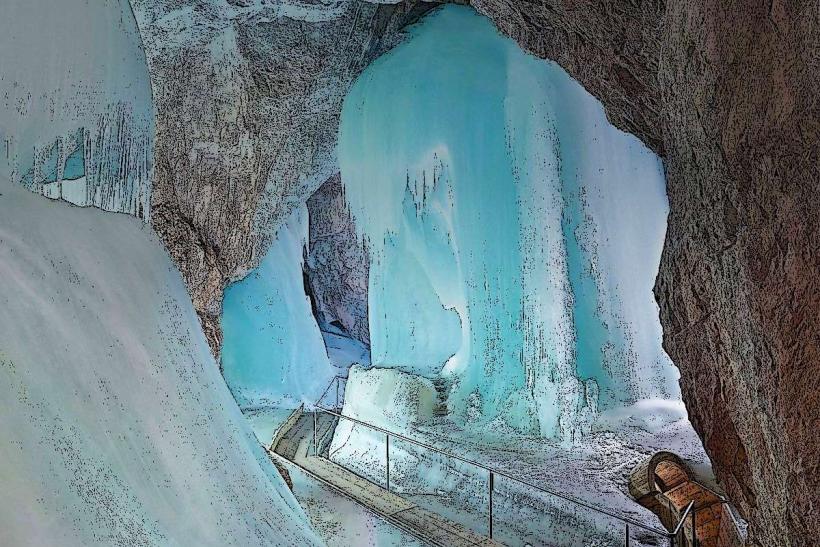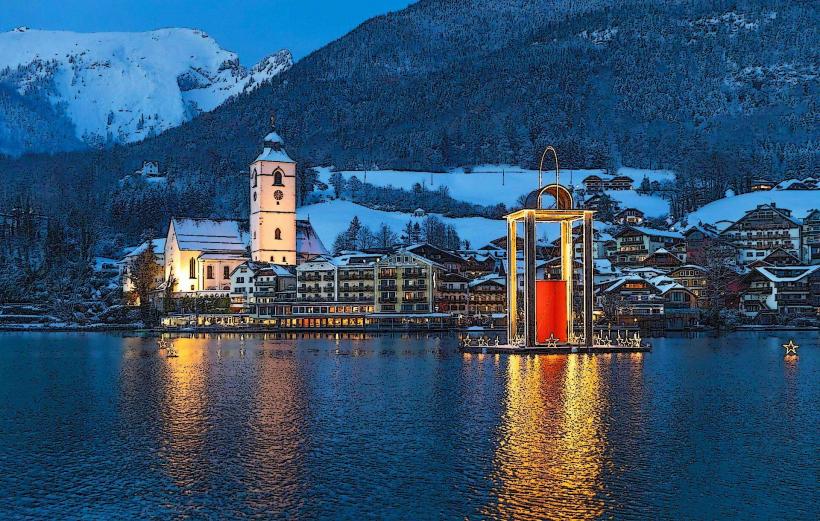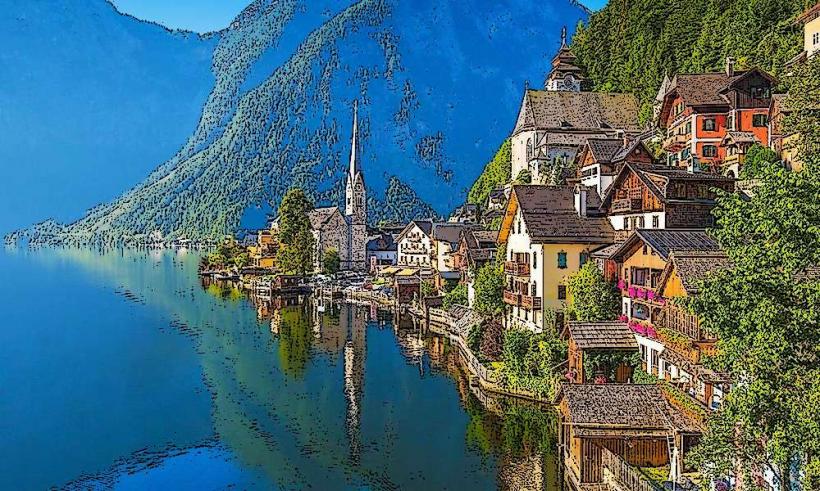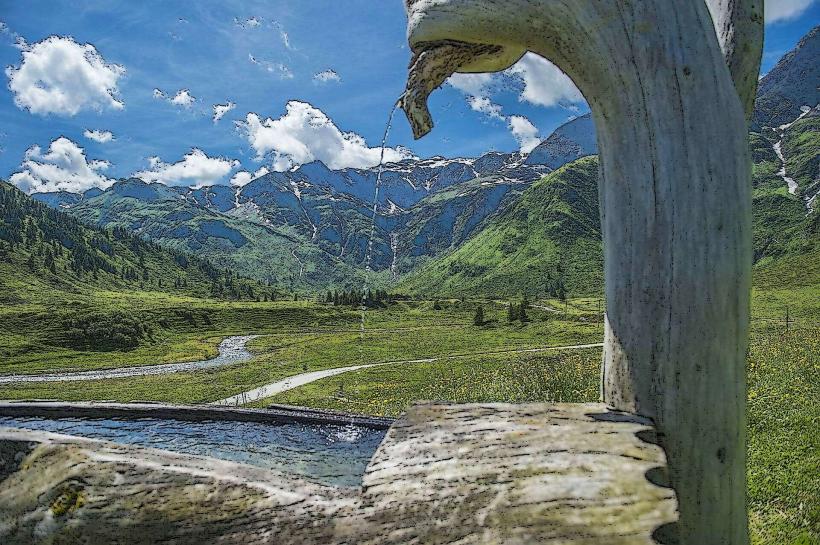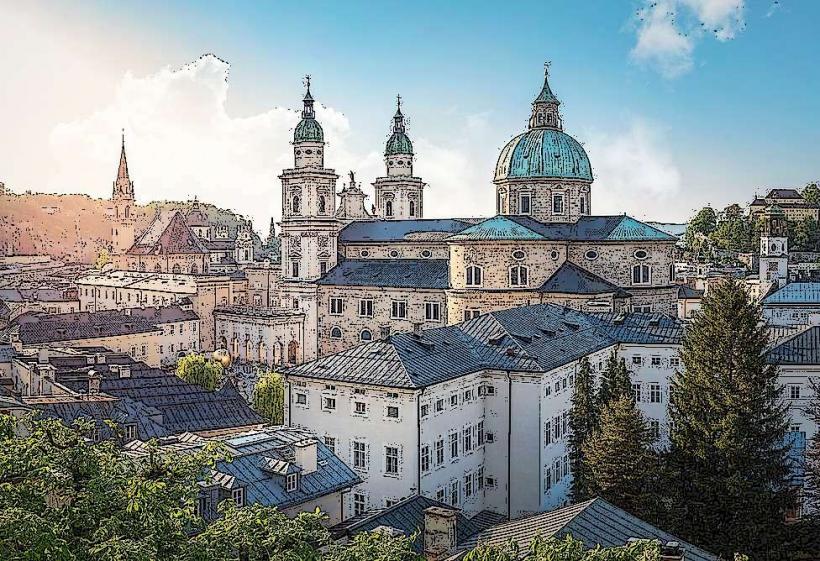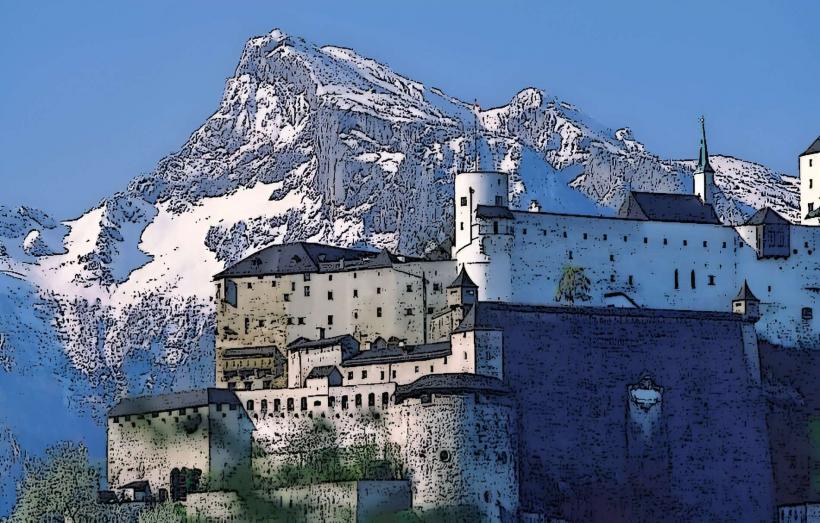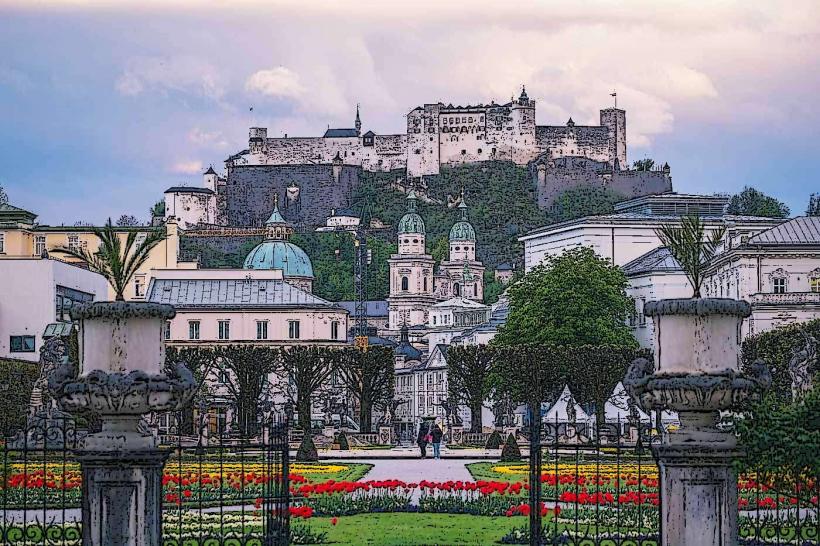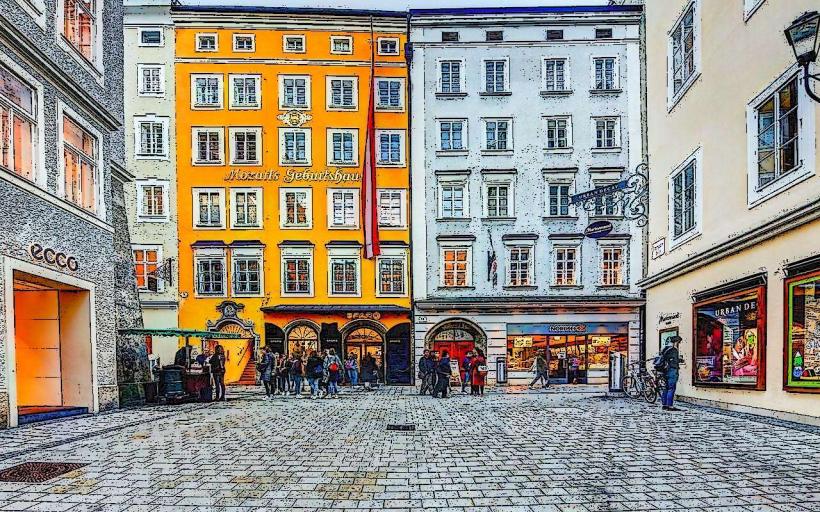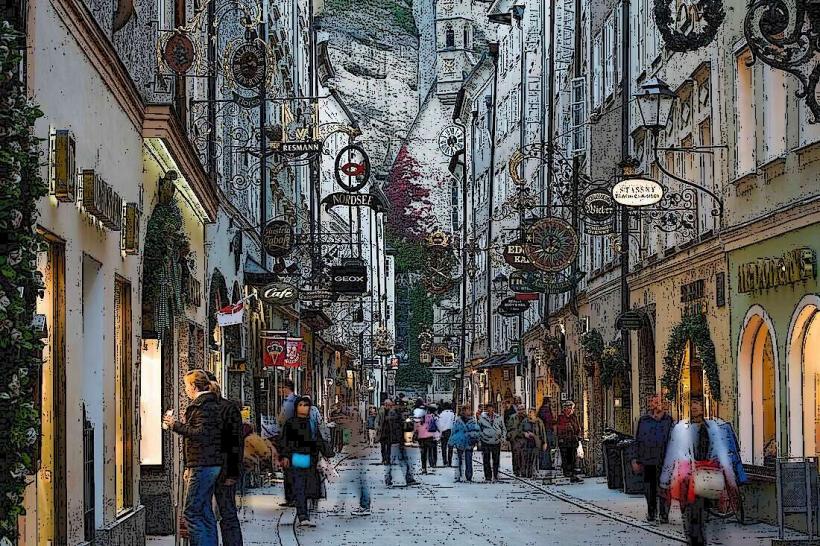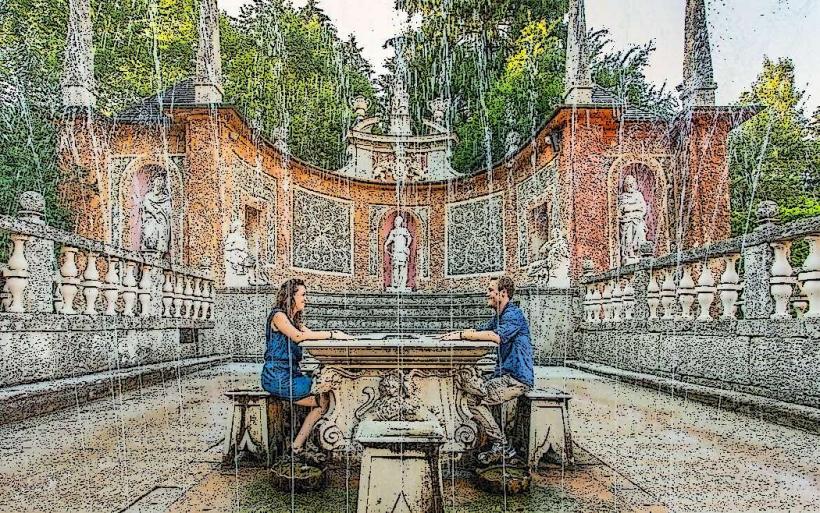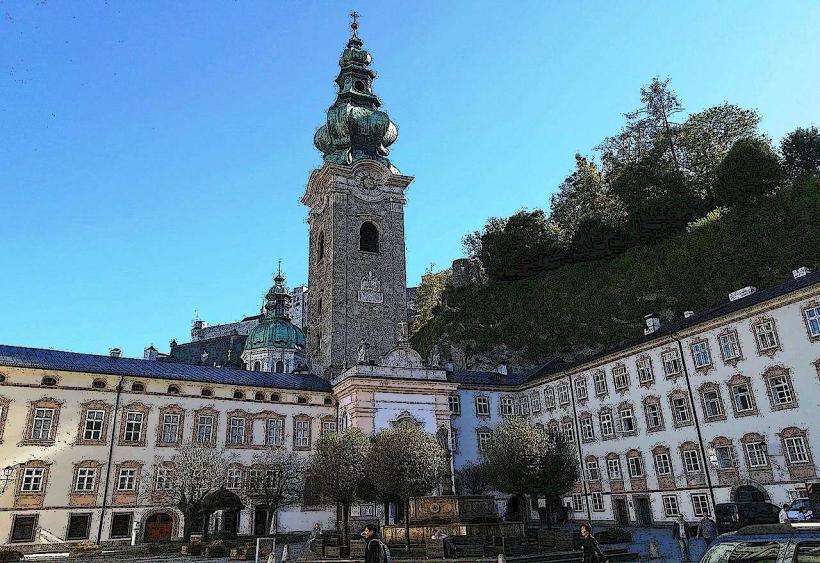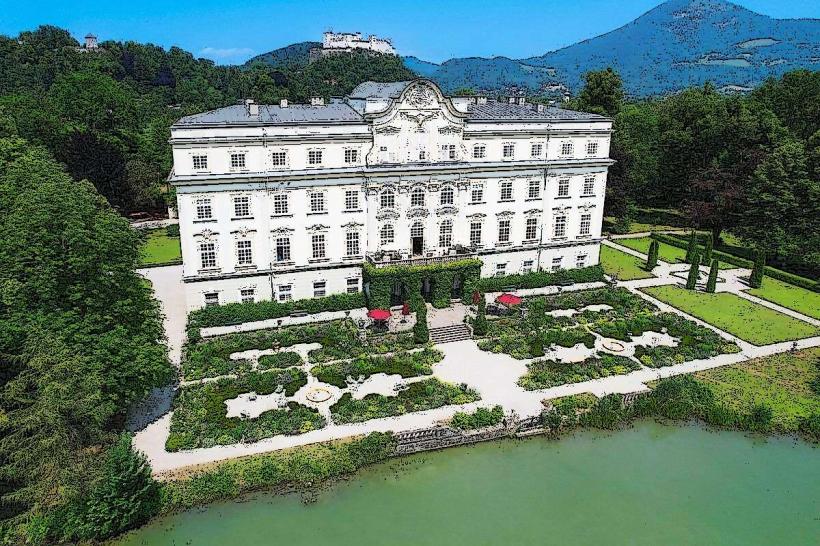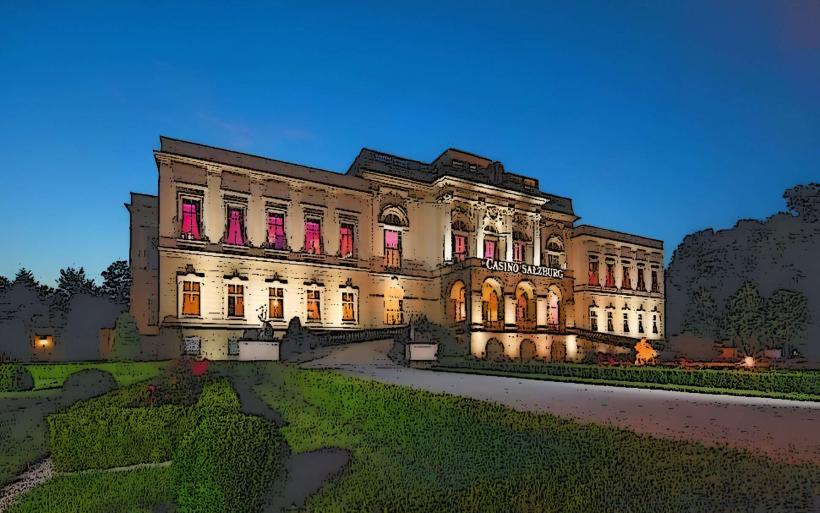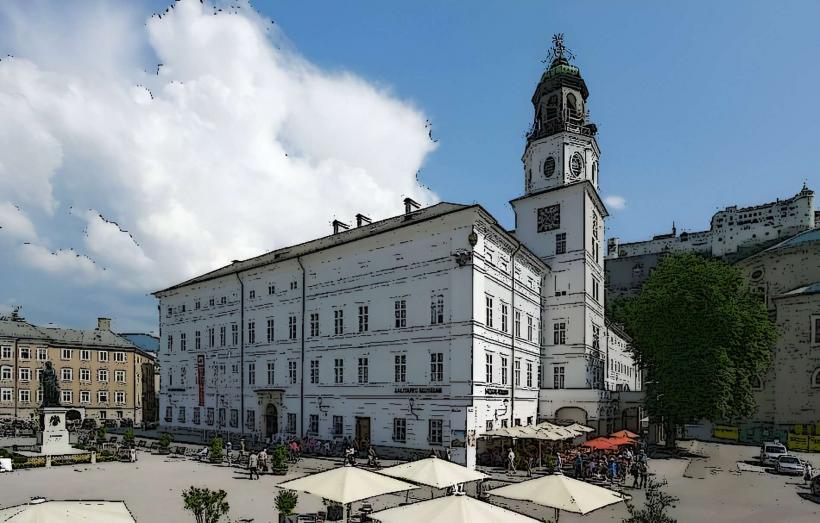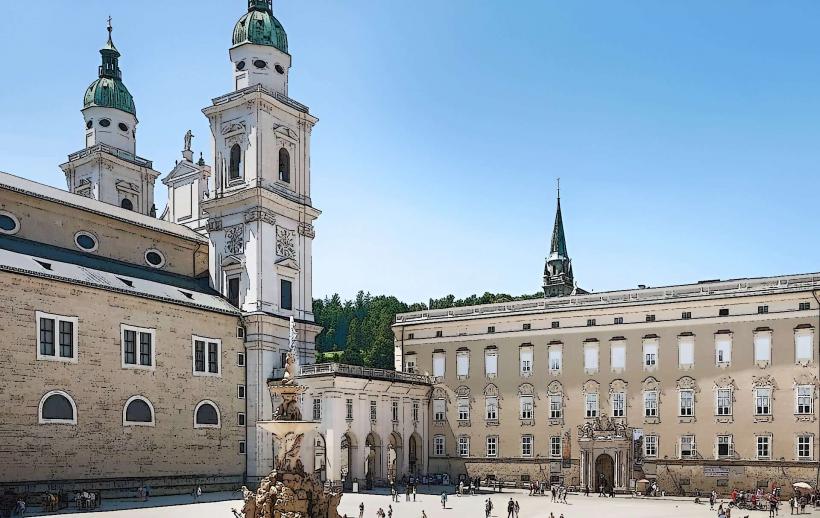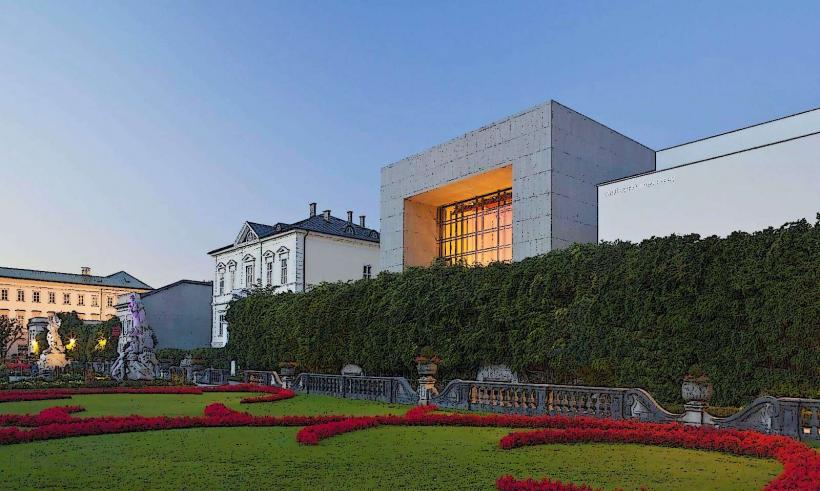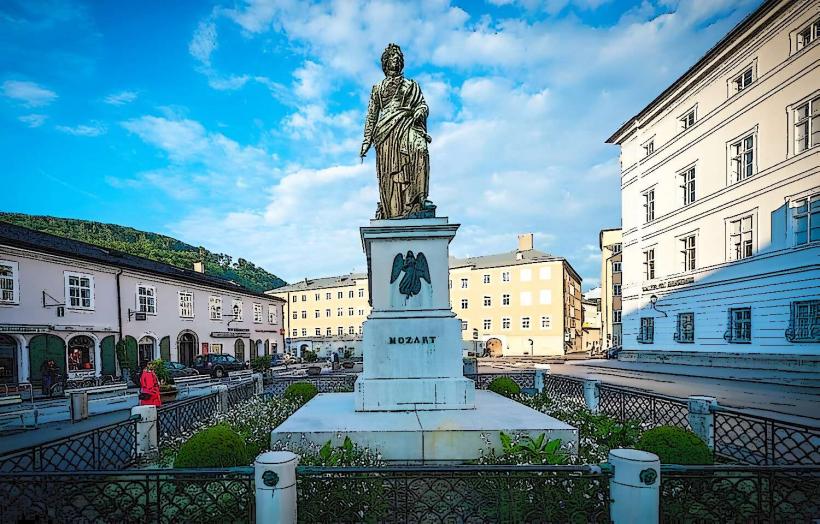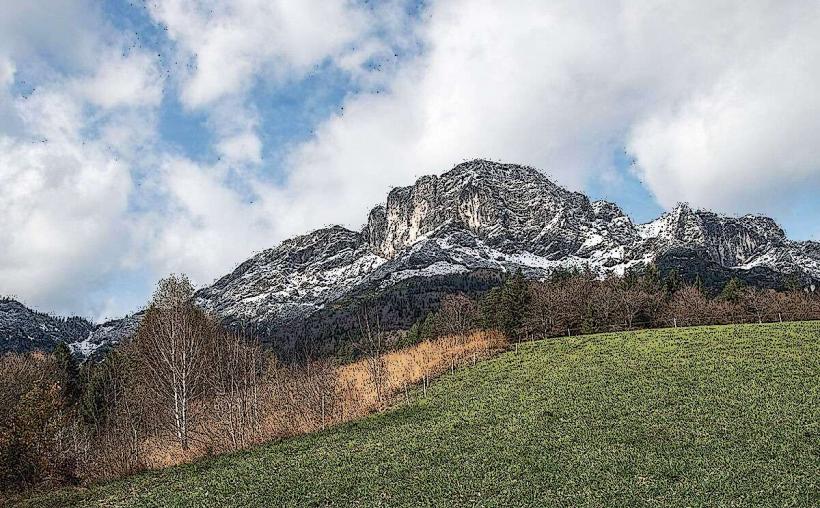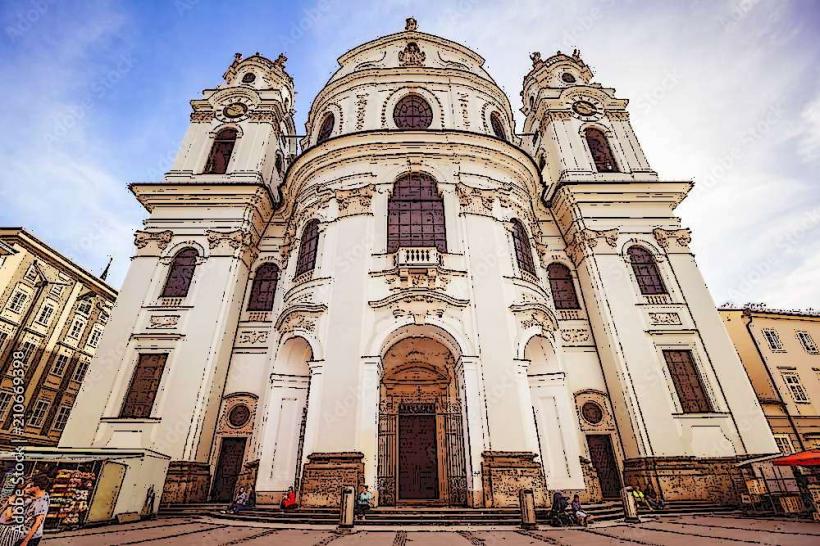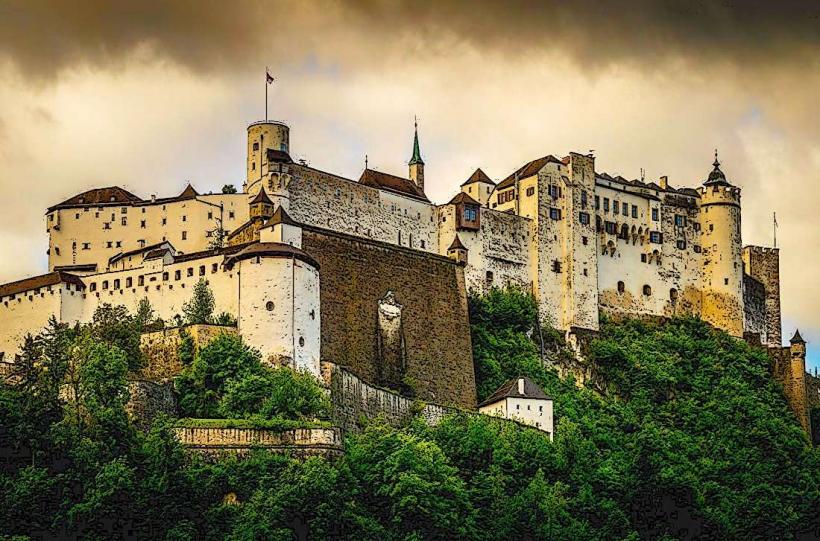Information
Landmark: Fortress HohenwerfenCity: Salzburg
Country: Austria
Continent: Europe
Fortress Hohenwerfen, Salzburg, Austria, Europe
Fortress Hohenwerfen – A Medieval Stronghold Overlooking the Salzach Valley
Fortress Hohenwerfen is a striking medieval fortress perched high on a rocky hill in the Salzach Valley, near the town of Werfen in Austria. This iconic castle, which has stood for over a millennium, offers a glimpse into the military history of the region and boasts spectacular views of the surrounding mountains and valleys. Today, it serves as a popular tourist attraction, drawing visitors with its medieval architecture, fascinating exhibitions, and dramatic setting.
Overview
- Name: Fortress Hohenwerfen (Burg Hohenwerfen)
- Location: Werfen, 5400, Austria (about 40 km south of Salzburg)
- Built: 1077
- Architectural Style: Romanesque, Gothic
- Key Features: Medieval fortress, tower, armory, falconry, panoramic views
- Famous For: Its historical significance, breathtaking views, and role as a film location (notably in the 1969 movie "Where Eagles Dare").
Historical Background
Foundation and Early History:
- Fortress Hohenwerfen was founded in 1077 by Archbishop Gebhard of Salzburg. It was constructed to secure the Salzach River valley and protect the important trade route running through the region.
- Over the centuries, it was expanded and modified, eventually evolving into a major stronghold for the archbishops of Salzburg. The fortress played an important role in defending the region against both external threats and internal uprisings.
Military Role:
- During the Middle Ages, the fortress was part of the archbishops' defenses, serving as a key military site in the region. The fortress’s strategic position on a rocky outcrop allowed it to control the Salzach River valley and defend against potential invasions.
- It was equipped with strong walls, towers, and gates that allowed it to withstand sieges. The fort was involved in several military conflicts and was considered almost impregnable during its peak.
Later History:
- After the Napoleonic Wars, the fortress gradually lost its military significance, though it was used as a prison in the 19th century.
- The fortress was restored in the 20th century and is now a museum and tourist attraction. It has also become a venue for cultural events, including medieval festivals and falconry demonstrations.
Key Features of Fortress Hohenwerfen
1. Medieval Architecture
- The fortress is an impressive example of Romanesque and Gothic architecture, with its strong stone walls, towers, and ramparts that reflect its military function.
- Key architectural elements include:
- The Keep (Bergfried): This is the tallest part of the castle, originally used for defense and as a lookout tower. Visitors can climb to the top of the Keep for spectacular panoramic views of the surrounding Salzach Valley and the Tennengebirge Mountains.
- Bailey (Inner Courtyard): The main courtyard of the castle, surrounded by various structures such as the armory and residential buildings. It was where the fortress’s garrison would have lived and worked.
- Towers and Walls: The fortress is equipped with multiple defensive towers, such as the "Schlossturm" and "Bergfried", and thick defensive walls that would have protected the castle from attack.
2. Armory and Exhibitions
- Fortress Hohenwerfen is home to a historical armory that displays a collection of medieval weapons, armor, and military equipment from various periods. Visitors can learn about the evolution of weapons used in medieval warfare and explore how the fortress was equipped for defense.
- The castle also houses exhibitions detailing its history, with sections dedicated to its military role, the archbishops of Salzburg, and its function as a fortified residence.
3. Falconry and Bird of Prey Shows
- One of the major attractions at Fortress Hohenwerfen is its falconry program. The fortress has a long tradition of bird of prey training, and visitors can experience spectacular falconry shows, where hawks, eagles, and vultures demonstrate their hunting skills.
- The castle’s Falconry Center provides interactive experiences, allowing guests to get close to the birds and learn about the ancient art of falconry. The shows often take place on the castle grounds with the majestic mountains as a backdrop, creating a dramatic setting for the performances.
4. Panoramic Views
- The fortress’s strategic position on top of a hill offers breathtaking views of the Salzach River valley and the Tennengebirge Mountains. Visitors can enjoy spectacular vistas from various points in the castle, especially from the top of the Keep.
- The scenic surroundings also make the fortress an ideal spot for photography, with its picturesque setting and dramatic landscape.
5. Film Location
- Fortress Hohenwerfen gained international recognition when it served as a filming location for the 1969 action film "Where Eagles Dare", starring Clint Eastwood and Richard Burton. The castle stood in for the fictional "Eagle's Nest", a German fortress in the Alps during World War II.
- The film’s iconic scenes, including the dramatic climbing of the fortress walls and action sequences, have cemented Hohenwerfen's place in cinematic history. Fans of the film often visit the fortress to see the location where some of the most famous scenes were filmed.
Current Use of Fortress Hohenwerfen
- Today, Fortress Hohenwerfen is primarily a museum and tourist attraction, offering guided tours, exhibitions, and events for visitors.
- The fortress hosts several cultural events, such as medieval festivals, concerts, and themed tours focusing on its history and role in Austrian military history.
- Visitors can enjoy activities such as guided tours of the fortress, interactive displays on its history, and falconry shows, which are particularly popular during the summer months.
Visiting Fortress Hohenwerfen
Opening Hours
- Fortress Hohenwerfen is open year-round, though the hours of operation can vary depending on the season. In the summer months, the fortress is open daily with extended hours, while in winter, it may have reduced hours.
Admission Fees
- Admission to the fortress is typically ticketed, with prices varying depending on age, group size, and whether visitors are attending a special event or falconry show. There are often family discounts and packages for groups.
Location
- Fortress Hohenwerfen is located in Werfen, approximately 40 km south of Salzburg, and is accessible by car or train. The Werfen train station is just a short distance from the fortress, making it easy to visit.
Conclusion
Fortress Hohenwerfen is a fascinating and scenic landmark that offers a unique glimpse into Austria’s medieval past. With its dramatic architecture, rich history, and breathtaking views, it is a must-see for history enthusiasts, film fans, and nature lovers. The addition of falconry shows and interactive exhibitions make it a dynamic destination for visitors of all ages, while its appearance in films like "Where Eagles Dare" ensures that it remains a beloved location for movie buffs.

